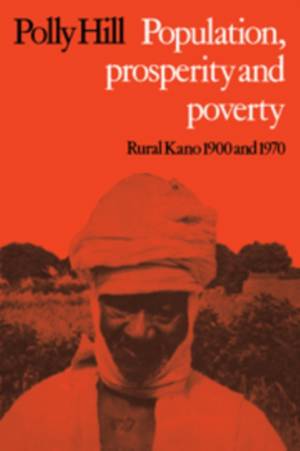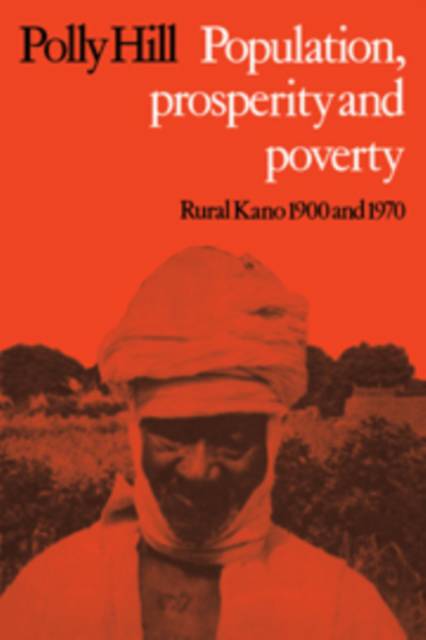
Bedankt voor het vertrouwen het afgelopen jaar! Om jou te bedanken bieden we GRATIS verzending (in België) aan op alles gedurende de hele maand januari.
- Afhalen na 1 uur in een winkel met voorraad
- In januari gratis thuislevering in België
- Ruim aanbod met 7 miljoen producten
Bedankt voor het vertrouwen het afgelopen jaar! Om jou te bedanken bieden we GRATIS verzending (in België) aan op alles gedurende de hele maand januari.
- Afhalen na 1 uur in een winkel met voorraad
- In januari gratis thuislevering in België
- Ruim aanbod met 7 miljoen producten
Zoeken
€ 64,95
+ 129 punten
Omschrijving
This book, which reports on fieldwork done in an exceedingly densely populated locality of rural Hausaland (Dorayi) in 1971-1972, is complete in itself. In it Dr Hill compares and contrasts Dorayi with the much less densely populated village of her previous study, with special reference to the consequences of high and persistent population density; she also attempts to interpret the present-day stability of this stagnating, impoverished, overcrowded community in terms of socio-economic conditions in rural Kano Emirate generally in very early colonial times, utilising archival as well as field material. Some of the consequences of persistent population pressure are most surprising (an example is the brake it puts on outward migration): they will be eagerly studied by demographers who commonly search in vain for relevant socio-economic studies, particularly any dealing with the plight of the most impoverished, who tend to get overlooked.
Specificaties
Betrokkenen
- Auteur(s):
- Uitgeverij:
Inhoud
- Aantal bladzijden:
- 260
- Taal:
- Engels
Eigenschappen
- Productcode (EAN):
- 9780521107082
- Verschijningsdatum:
- 2/04/2009
- Uitvoering:
- Paperback
- Formaat:
- Trade paperback (VS)
- Afmetingen:
- 152 mm x 229 mm
- Gewicht:
- 385 g

Alleen bij Standaard Boekhandel
+ 129 punten op je klantenkaart van Standaard Boekhandel
Beoordelingen
We publiceren alleen reviews die voldoen aan de voorwaarden voor reviews. Bekijk onze voorwaarden voor reviews.









